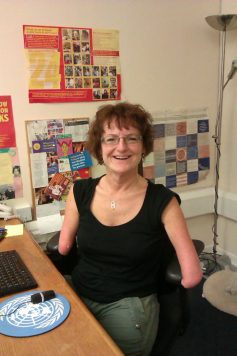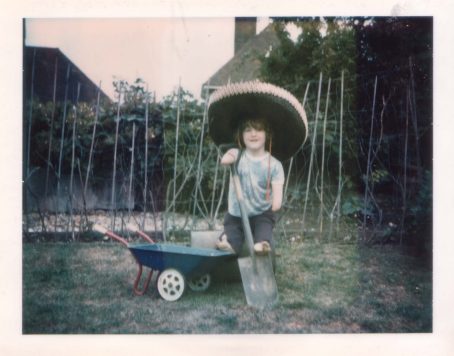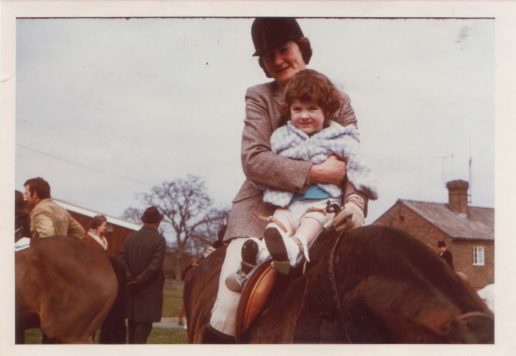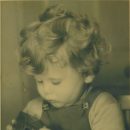Time in Hospital
Tara Flood: Normalising
Tara was born in 1966 in Preston, Lancashire. She was sent to a residential special school in East Sussex at just sixteen months of age and remained there until she was sixteen. She then returned to Preston and attended a local mainstream college.
Here Tara describes the medical interventions and examinations she had to endure at school.
https://howwasschool.allfie.org.uk/wp-content/uploads/2013/06/normalising.mp3
It was all about fixing us, making us look as normal as possible. I was five, five and six year olds operating gas cylinders, I mean, nowadays it would just be – well, if nothing else it would be a health and safety issue, but at the time it was perfectly reasonable.
And I remember, walking into a, kind of like a medical surgery really, with lots of medical things around, and just being confronted by – oh, I don’t know, ten, fifteen, sometimes twenty adults, mostly men, all of whom I assume were medical but no one was ever introduced to me, and then expected to – then put on an examination table, my clothes taken off and then just inspected by – oh yeah, ten, fifteen, sometimes twenty people. It’s just – just terrible. We weren’t – I mean, I suppose – bad enough that you’re lying there naked as a child with unknown people in the room, but the fact that no one ever then talked to you. No one ever said 'I’m so and so', this is why we’re doing this, never asking me anything.
And I remember real concern that there was about the fact that one of my arms was growing longer than the other and whether or not there was a need for some kind of surgical intervention to rectify that because wouldn’t that create more problems with being fitted with artificial arms.
Transcript
The kind of things I remember more were I suppose the interventions that there were in terms of trying to normalise us. So on the same site as these three nursery areas, for want of a better description, was the technical engineering block. The swimming pool was also there too as a slight antidote to this block. But this was a combination of technical and rehab engineering and at the time it was definitely the view at the school that they were doing some really pioneering work. And it was really about fitting gadgets to us to help us be more independent. What I’m really talking about here are – it’s interesting – and why that kind of innovation, their word rather than mine, happened, was because it had been a school where the majority of young people with Thalidomide had gone, and so the practice of wanting to attach limbs to limbless children had happened at Chailey Heritage.It was all about fixing us, making us look as normal as possible. I was five, five and six year olds operating gas cylinders, I mean, nowadays it would just be – well, if nothing else it would be a health and safety issue, but at the time it was perfectly reasonable.
And I remember, walking into a, kind of like a medical surgery really, with lots of medical things around, and just being confronted by – oh, I don’t know, ten, fifteen, sometimes twenty adults, mostly men, all of whom I assume were medical but no one was ever introduced to me, and then expected to – then put on an examination table, my clothes taken off and then just inspected by – oh yeah, ten, fifteen, sometimes twenty people. It’s just – just terrible. We weren’t – I mean, I suppose – bad enough that you’re lying there naked as a child with unknown people in the room, but the fact that no one ever then talked to you. No one ever said 'I’m so and so', this is why we’re doing this, never asking me anything.
And I remember real concern that there was about the fact that one of my arms was growing longer than the other and whether or not there was a need for some kind of surgical intervention to rectify that because wouldn’t that create more problems with being fitted with artificial arms.
Explore more
Explore stories by theme or view the timeline of significant events in education for disabled people
![How Was School? [logo]](https://howwasschool.allfie.org.uk/wp-content/themes/hws-base-theme/assets/img/allfie-logo-original.svg)





